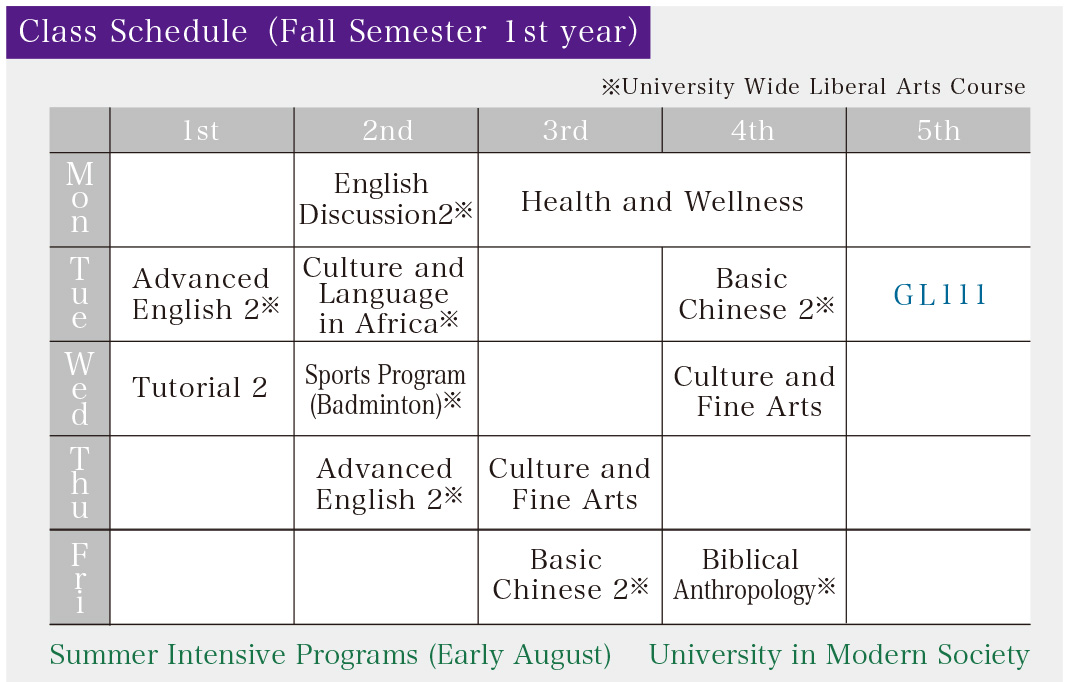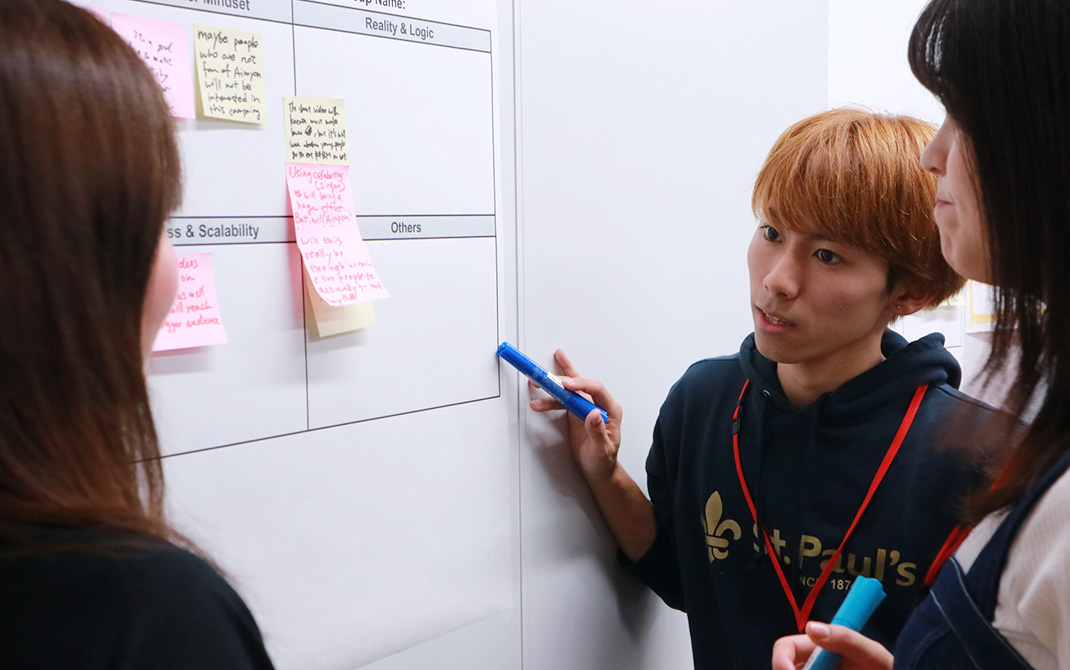Cultivating Your Self-Confidence and Independence through Meeting Friends Who Will Work Hard with You
Shizuoka / Katoh Gakuen Gyoshu Senior High School Junya Eriguchi
Apr 25, 2023
GLAP Students
An environment and curriculum that brings the world closer
I earned an International Baccalaureate because I wanted to become an international lawyer or diplomat. During that schooling, I came to realize the importance of understanding and analyzing from multiple perspectives and developing my own values and worldview. I chose GLAP because of its liberal arts focus, as I felt I would be able to deepen what I learned in high school. I also considered going to university overseas, but I couldn’t gather the courage since I had never studied abroad or lived on my own at that poi nt. So GLAP, which is an environment in Japan where I feel like I am oversea s and which has a mandatory study abroad component, was appealing to me.
Classes connected the dots and overseas study that increased my independence
I have heard people around me say that lectures and classes at university are somewhat unsatisfactory, but it’s the opposite in GLAP. The lectures and assignments are tough, but I am constantly surprised by things, even in classes on topics that don’t really interest me at first. As my perspective has broadened I can see common problems among seemingly different matters and there are many moments where the dots connect. This experience has helped me reaffirm the strengths of a liberal arts education for cross-disciplinary learning. The high degree of freedom to change your interests as you learn is also a very appealing part of the program. Studying abroad in the US was also a good opportunity for me to reflect on myself and build my courage and independence. Outside of class, I actively participated in parties and events held at the international dormitory and went on a trip to Hawaii with fellow international students. The experience of building relationships with people who have completely different values while using only English helped me gain confidence that I can be positive and enjoy myself no matter what kind of community I’m in.
A small-group education allows you to make mistakes

The most impressive thing about my four years in GLAP has been my classmates. There are only 20 students in each year, so you naturally get to know their personalities. At the same time, we are a group with a wide range of values, so when there is a clash of opinions, there is no trouble afterwards, nor do you need to pretend to be nice. It’s a valuable relationship where we can clearly express our thoughts or come to realize our own mistakes. It was also stimulating to witness the growth of my classmates-including one person whose English was not very good at first but who ended up winning a business contest after studying abroad. The strength of GLAP is that it offers an environment in which students can make mistakes. In large groups, it’s easy to think that somebody else will take care of a matter, but GLAP’s small group size makes you want to raise your own hand. Even when you fail you are not invalidated, and the professors provide a lot of support. GLAP is place where everyone is given the chance to shine, not just a few of the most talented.
GL111

Poster Session in GL111
The aim of this class is to develop each student’s leadership. Small teams of 5‒6 students work jointly with client companies and organizations on development projects. Students begin by first learning leadership theory and do a s elf-analysis. The various team members then collaborate on creating a new proposal and make a final presentation.
I was somewhat skeptical at first about the meaning of fostering leadership. However, it turned out to be a great experience as the content was not about the standard definition of being a person who stands at the top and leads, but about the concept of each person in a team exercising leadership in accordance with his/her personality by discovering their own unique leadership style and strengths. I am also happy to have been selected for the client award in the final competition.
I was somewhat skeptical at first about the meaning of fostering leadership. However, it turned out to be a great experience as the content was not about the standard definition of being a person who stands at the top and leads, but about the concept of each person in a team exercising leadership in accordance with his/her personality by discovering their own unique leadership style and strengths. I am also happy to have been selected for the client award in the final competition.
University in Modern Society
Using Not for Profit: Why Democracy Needs the Humanities as a textbook, students learned about how university education has played a role in global politics and its transformation. The professor came to Japan from the University of Lethbridge, one of the program’s partner universities in Canada, to teach the class. Although it is an intensive summer course that lasts only a few days, we read the text each day and provided over 1,000 words of feedback, which we used as the basis for 5‒6 hours of discussion with class members and the professor. Since there was only a total of three students in the course, it was a very condensed learning experience.
Learning about the historical and ideological background behind the creation of universities and the education they provide as well as their philosophical meaning was also a valuable opportunity for me to rethink the significance of my GLAP studies. I had never taken a philosophy class before, so it had a great impact on me.
*as of the time of this interview
Learning about the historical and ideological background behind the creation of universities and the education they provide as well as their philosophical meaning was also a valuable opportunity for me to rethink the significance of my GLAP studies. I had never taken a philosophy class before, so it had a great impact on me.
*as of the time of this interview
